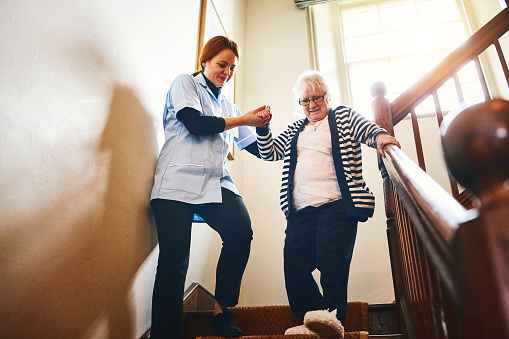A quick guide to Social Care roles

When most people think of Social Care work, they think of working in Care Homes or other facilities for the elderly, and while these are significant roles in this sector there are so many more to choose from. Here’s our guide to some of the most common jobs in Social Care.
Activities Worker
Activities workers are usually based in care homes or day centres, but you could also work in someone’s home or within the community. You’ll be responsible for organising activities for people who need care and encourage them to take part.
This might include discussing and planning the activities people would like to do that are tailored towards their specific needs, considering accessibility and transport arrangements, and helping them take part.
Care/Support Worker
Care/Support workers can work in a care home, in people’s own homes or in the community and provide support to people in all aspects of their day-to-day life. This can include physical activities, personal care, social outings, meal preparation and assisting with medication.
As a Care or Support worker, you could be working with a wide variety of people such as adults and/or children with learning difficulties or physical disabilities, people with mental health issues or the elderly.
Personal Assistant
Personal assistants perform similar duties to Care/Support workers, but you’ll be working one-on-one with an individual rather than supporting several different people. Personal assistants usually support individuals in their own home or out in the community.
You’ll typically help them with their social and physical activities, book and attend appointments, tasks around the home such as cooking and cleaning and any health-related needs such as blood pressure monitoring or taking medication.
Rehabilitation worker
Rehabilitation workers help people who are in recovery from an illness or accident to live as independently as possible. You’ll often work alongside other professionals such as social workers and occupational therapists to make sure they are supported on matters such as housing, finance, social activities and daily life skills such as cooking or budgeting.
Your role might include teaching people day-to-day things such as making a cup of tea or reading braille as well as giving advice and support on using any specialist equipment them may require.
Advocacy worker
Advocacy workers support vulnerable people to make decisions and ensure that they get their voice heard when others are making decisions about their life on their behalf. You’ll be helping secure people’s rights, access vital services and ensure that they are actively involved in the planning of their care and support.
You could be helping people with decisions about housing, disability living allowance, care planning, medical decisions, financial planning and hospital admissions. This kind of support is invaluable to vulnerable people and so it’s important that you support individuals to express their views, wishes and choices in matters affecting their lives.
Housing Support Officer
As a housing support officer, you’ll support people who need care to live as independently as possible by helping them find housing and maintain their tenancy. You could be working in a sheltered accommodation facility, supported living facility, a hostel for the homeless or for a local authority or housing association.
Your role will involve helping people gain access to housing services, understand housing benefits, performing administrative tasks such as filling out financial records and carrying out health and safety assessments.
Employment Advisor
Employment advisors support people who need care to find and maintain employment. You could work in an advice centre or for a charity.
You’ll talk to be people about their goals, interests and abilities and assess their skills with the aim of finding them employment that suits them. Your role might include helping people with their job search, CV or applications and supporting them in finding transport to get to their job. You’ll also build relationships with local colleges, training providers and employers to better support the people who need your services.
Social Worker
Social workers support people through difficult circumstances by offering support and guidance and intervening when vulnerable people need safeguarding. You could be supporting a wide variety of people including older people and those with learning disabilities, physical disabilities and mental health conditions.
You’ll usually provide support for a limited period as they adjust to changes in their lives such as illness, bereavement or recovery from addiction. You’ll usually have several people to support at one time and will have close relationships with organisations such as the police, health services, schools and probation services.
Ready to take on a job in Social Care? You’ll find 100’s of roles like these from top employers at jobs24.com.
Posted on September 23, 2020
Topics
Recent
- <strong>How to Become an IT Professional in England: Qualifications and Skills for the Role</strong>
- How to Email Your CV: A Guide for Jobseekers in England & Wales
- Exploring Rewarding Careers in the Third Sector and Further Education in England
- Setting up your first LinkedIn profile
- Dealing with the ‘Summer Scaries’
- Unlocking Career Success: How to Make the Most of Jobs24
- Common questions asked in an interview and how to answer them
- Questions to Ask at the end of an Interview



